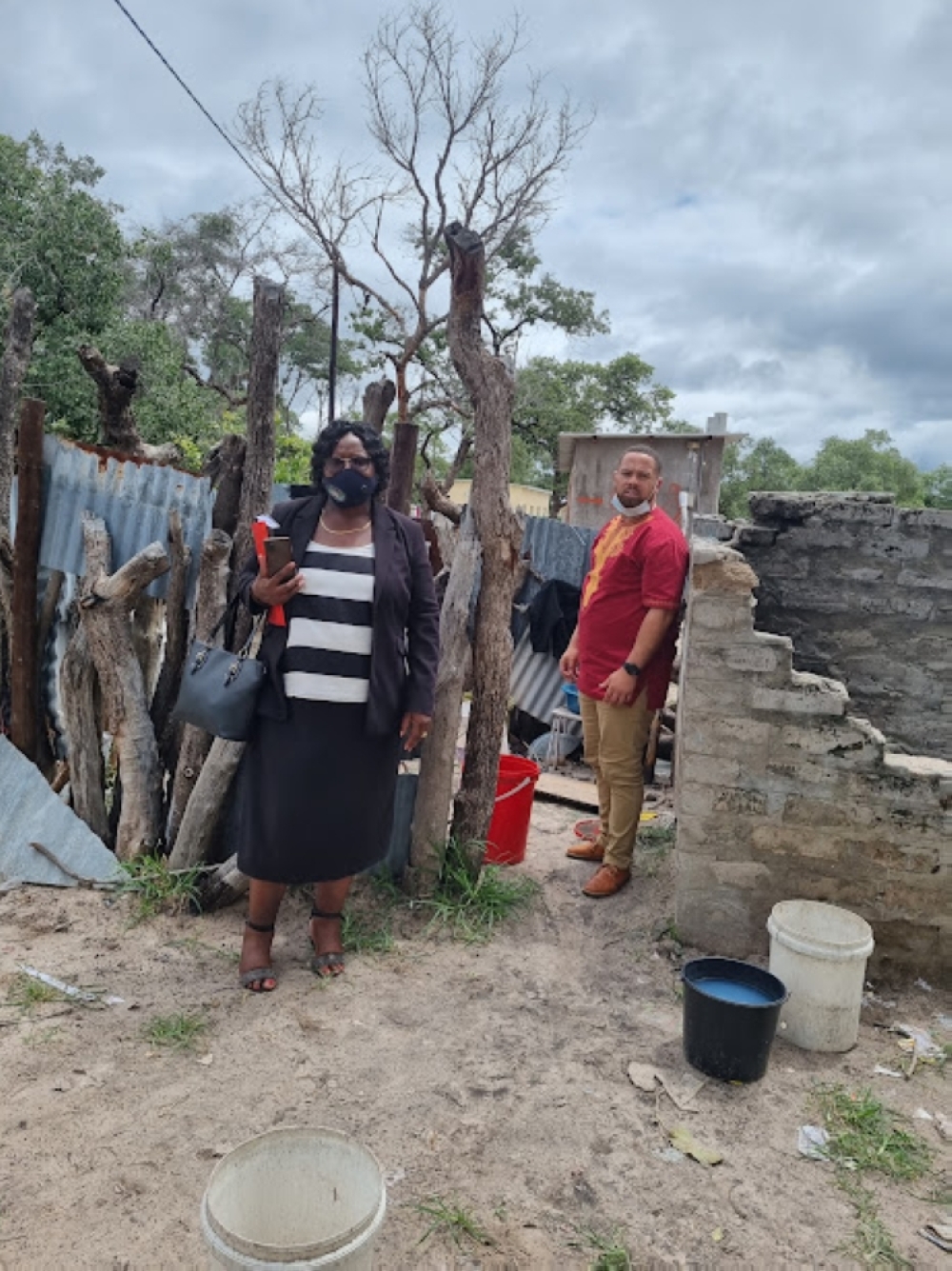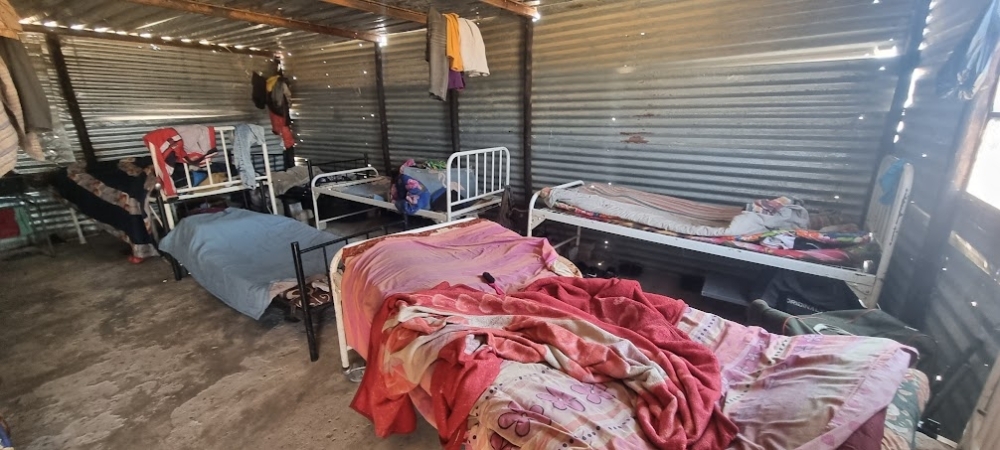MPs shocked by ‘hazardous’ school hostels
Lawmakers recently got a grim picture of the perilous state of school hostels - which house thousands of learners on a daily basis.
This after the Parliamentary Standing Committee on Education, Science, ICT and Youth Development undertook oversight visits to assess the condition of hostels last year.
A report on the visits was released earlier this month. The committee has since called on the education ministry to investigate the matter, and allocated resources to improve the state of community hostels in Namibia.
According to the committee, "the well-being of learners in most of the community hostels is compromised as some of these hostels seem to be neglected and in poor condition, and pose a health hazard to learners".
It was also found that most of the 52 hostels visited across the country were not registered and do not receive a government subsidy.
The committee also expressed disappointment in the daily N$22 subsidy allocated by the state to each hostel learner, stating that it is not sufficient due to the high cost of living and escalating cost of commodities.
“It was evident during the visits that the hostels were struggling to keep afloat, with some exceptions in areas where parents make timeous contributions or where schools receive donor funding,” the report read.
Schools can also not depend much on parents, it found, citing that most were struggling to pay the minimum fees.
Mismanagement, debt
Meanwhile, the committee revealed that there were elements of mismanagement of the government subsidy at some schools, with very little consequences for perpetrators, while in some cases, school hostels were in serious debt with suppliers.
“The committee also found that school principals with community hostels on private land have little to no say over the government subsidy since the land owners decide how the money will be spent,” the report noted.
The committee confirmed media reports which stated that learners at Etanga Primary School in the Kunene Region have been sleeping in classrooms for the past 11 years. On the day members visited the school, there was no water or electricity. Teachers have since resorted to pooling funds to maintain the hostel.
According to the committee, inconsistencies in ministerial policy and guidelines in the administration of government-subsidised hostels reared its head during its visits last year.
“We observed that many of the community hostels are not registered because they could not obtain fitness certificates, which require hostels to have, among others, proper kitchen structures with storage facilities, a dining hall and functioning ablution facilities.”
The report further said some hostels receive government subsidies despite failing to meet requirements.
“It was noted during the consultative meeting that the ministry did not seem to be aware of the inconsistencies; however, the committee was informed that most of the functions of the ministry had been decentralised - including the management of community hostels.”
Punitive measures
Further, the committee called on regional education directorates to oversee the implementation of policy, and ensure that hostels meet requirements.
“Take punitive measures against culprits who misuse hostel funds and other resources as this erodes the public’s trust in these important institutions.
“Also, consider extending the 15% for maintenance to all community hostels in order to assist in the expansion and maintenance of the hostel facilities,” it recommended.
Good Samaritans
Recently, corporate giants like MTC made pledges to restore damage done to schools by the floods.
The telecommunications giant - through its Rural Schools Project - plans to construct classrooms in three regions this year, to the value of N$3.25 million. Zambezi, Ohangwena and Hardap will benefit from the donation to the tune of N$1 million, N$1.25 million and N$1 million respectively.
"We start with the worst school in every region. Then, once construction is complete, we go back to those regions and take the second-worst school," the company’s chief of human capital, Tim Ekandjo, said during the launch of the project earlier this month.
This after the Parliamentary Standing Committee on Education, Science, ICT and Youth Development undertook oversight visits to assess the condition of hostels last year.
A report on the visits was released earlier this month. The committee has since called on the education ministry to investigate the matter, and allocated resources to improve the state of community hostels in Namibia.
According to the committee, "the well-being of learners in most of the community hostels is compromised as some of these hostels seem to be neglected and in poor condition, and pose a health hazard to learners".
It was also found that most of the 52 hostels visited across the country were not registered and do not receive a government subsidy.
The committee also expressed disappointment in the daily N$22 subsidy allocated by the state to each hostel learner, stating that it is not sufficient due to the high cost of living and escalating cost of commodities.
“It was evident during the visits that the hostels were struggling to keep afloat, with some exceptions in areas where parents make timeous contributions or where schools receive donor funding,” the report read.
Schools can also not depend much on parents, it found, citing that most were struggling to pay the minimum fees.
Mismanagement, debt
Meanwhile, the committee revealed that there were elements of mismanagement of the government subsidy at some schools, with very little consequences for perpetrators, while in some cases, school hostels were in serious debt with suppliers.
“The committee also found that school principals with community hostels on private land have little to no say over the government subsidy since the land owners decide how the money will be spent,” the report noted.
The committee confirmed media reports which stated that learners at Etanga Primary School in the Kunene Region have been sleeping in classrooms for the past 11 years. On the day members visited the school, there was no water or electricity. Teachers have since resorted to pooling funds to maintain the hostel.
According to the committee, inconsistencies in ministerial policy and guidelines in the administration of government-subsidised hostels reared its head during its visits last year.
“We observed that many of the community hostels are not registered because they could not obtain fitness certificates, which require hostels to have, among others, proper kitchen structures with storage facilities, a dining hall and functioning ablution facilities.”
The report further said some hostels receive government subsidies despite failing to meet requirements.
“It was noted during the consultative meeting that the ministry did not seem to be aware of the inconsistencies; however, the committee was informed that most of the functions of the ministry had been decentralised - including the management of community hostels.”
Punitive measures
Further, the committee called on regional education directorates to oversee the implementation of policy, and ensure that hostels meet requirements.
“Take punitive measures against culprits who misuse hostel funds and other resources as this erodes the public’s trust in these important institutions.
“Also, consider extending the 15% for maintenance to all community hostels in order to assist in the expansion and maintenance of the hostel facilities,” it recommended.
Good Samaritans
Recently, corporate giants like MTC made pledges to restore damage done to schools by the floods.
The telecommunications giant - through its Rural Schools Project - plans to construct classrooms in three regions this year, to the value of N$3.25 million. Zambezi, Ohangwena and Hardap will benefit from the donation to the tune of N$1 million, N$1.25 million and N$1 million respectively.
"We start with the worst school in every region. Then, once construction is complete, we go back to those regions and take the second-worst school," the company’s chief of human capital, Tim Ekandjo, said during the launch of the project earlier this month.






Comments
Namibian Sun
No comments have been left on this article